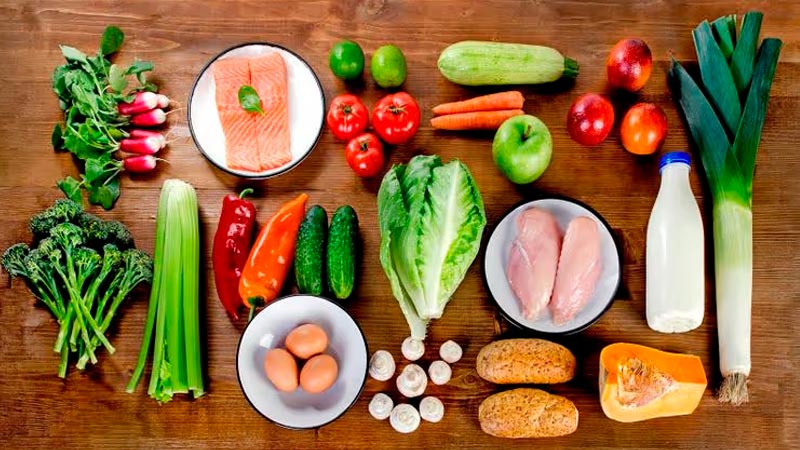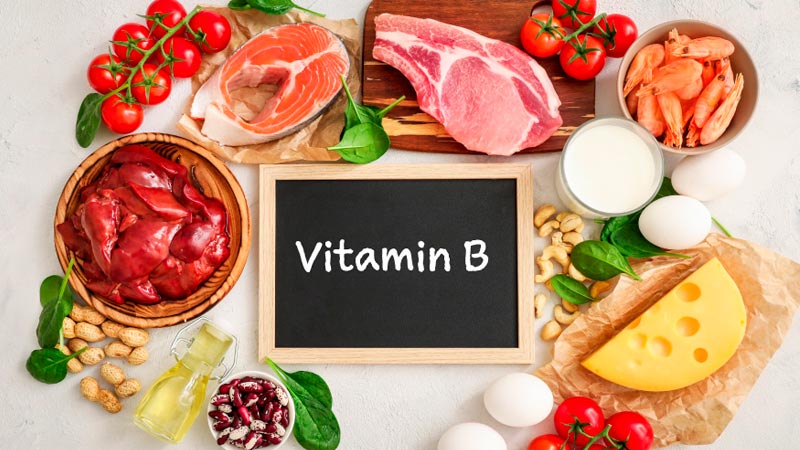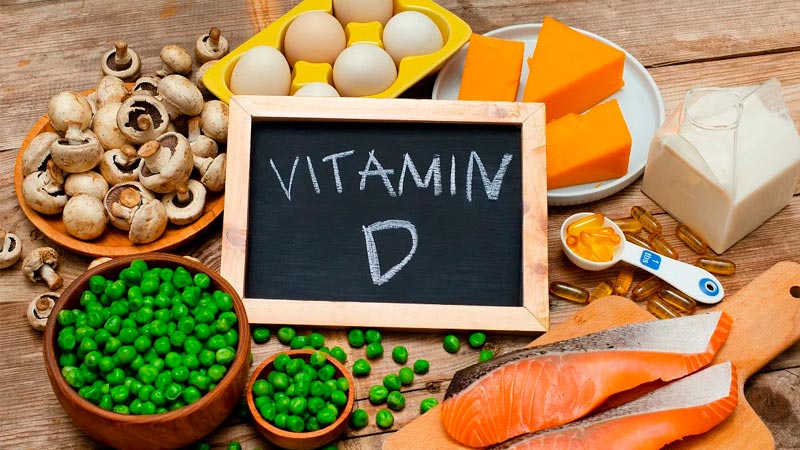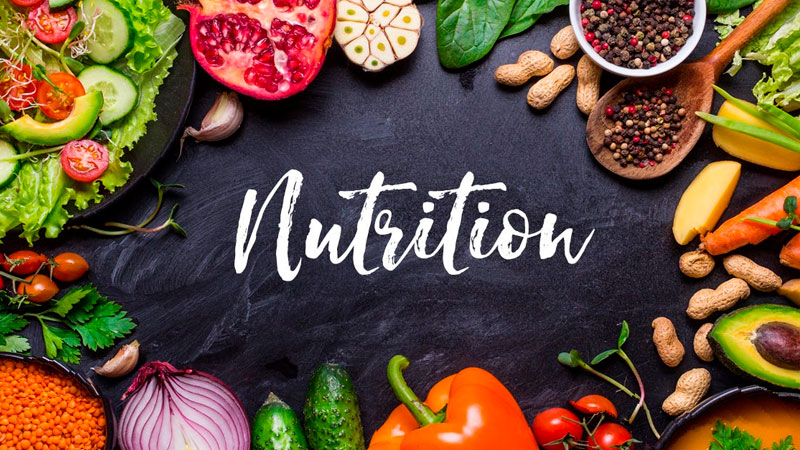Vitamins are essential nutrients that the body needs to function properly. While they don't directly contribute to weight loss, certain vitamins can help support the body's metabolism, which in turn can aid in weight loss efforts.
Table of Contents
In this article, we will explore some of the vitamins that have been shown to help with weight loss.
One of the most well-known vitamins for weight loss is vitamin D. This vitamin is important for bone health, but studies have also shown that it can help with weight loss. Vitamin D helps the body absorb calcium, which is important for muscle function. When muscles are working efficiently, they burn more calories, which can lead to weight loss. Additionally, vitamin D deficiency has been linked to obesity, so ensuring adequate levels of vitamin D in the body may be helpful for weight loss.
Another vitamin that can aid in weight loss is vitamin B12. This vitamin is important for energy production and can help support the body's metabolism. When the body's metabolism is functioning properly, it can help burn calories more efficiently, which can lead to weight loss. Additionally, vitamin B12 deficiency can lead to fatigue, which can make it more difficult to maintain an active lifestyle and stick to a weight loss plan.
Understanding Weight Loss
Weight loss is a complex process that involves burning more calories than one consumes. There are various factors that can contribute to weight gain, such as genetics, lifestyle, and diet. To lose weight, one must create a calorie deficit by reducing calorie intake and increasing physical activity.
While there are many weight loss supplements and fad diets on the market, the most effective way to lose weight is through a healthy and balanced diet, regular exercise, and lifestyle changes. Vitamins and supplements can support weight loss efforts, but they cannot replace a healthy diet and exercise.
It is important to note that weight loss should be approached in a healthy and sustainable way. Rapid weight loss can be dangerous and lead to health complications. A safe and healthy rate of weight loss is 1-2 pounds per week.
In addition to a healthy diet and exercise, certain vitamins and supplements may aid in weight loss efforts. However, it is important to consult with a healthcare professional before adding any new supplements to one's diet.
Some vitamins and supplements that may aid in weight loss include:
- Vitamin D: Low levels of vitamin D have been linked to obesity. Supplementing with vitamin D may help promote weight loss.
- B vitamins: B vitamins play a crucial role in metabolism and energy production. Supplementing with B vitamins may help boost metabolism and aid in weight loss.
- Iron: Iron deficiency can lead to fatigue and low energy levels, which can make it difficult to exercise and maintain a healthy diet. Supplementing with iron may help improve energy levels and aid in weight loss.
- Fiber: Fiber can help promote feelings of fullness and reduce calorie intake. Adding fiber-rich foods or supplements to one's diet may aid in weight loss.
In summary, weight loss is a complex process that requires a healthy and balanced diet, regular exercise, and lifestyle changes. While vitamins and supplements may aid in weight loss efforts, they cannot replace a healthy diet and exercise. It is important to approach weight loss in a safe and sustainable way and consult with a healthcare professional before adding any new supplements to one's diet.
Role of Vitamins in Weight Loss
Vitamins are essential nutrients that the body needs to function properly. They play a crucial role in maintaining a healthy weight. A balanced diet that includes foods rich in vitamins can help in weight loss and prevent obesity.
Some vitamins help in the metabolism of carbohydrates, proteins, and fats, which are the main sources of energy for the body. Vitamins B1, B2, B3, B5, and B6 are involved in the breakdown of carbohydrates, while vitamins B5, B6, and B7 play a role in the breakdown of fats and proteins.
Vitamin D is also important in weight loss. It helps the body absorb calcium, which is essential for strong bones. Strong bones can help increase muscle mass, which in turn can help burn more calories.
Vitamin C is another important nutrient that can aid in weight loss. It is a powerful antioxidant that helps the body fight off harmful free radicals. It also helps in the production of carnitine, a compound that helps the body burn fat for energy.
Incorporating foods rich in these vitamins into a balanced diet can help in weight loss. Some examples of foods rich in these vitamins are citrus fruits, leafy greens, nuts, and lean meats. However, it is important to note that relying solely on vitamin supplements for weight loss is not recommended. A healthy diet and regular exercise are still the most effective ways to achieve and maintain a healthy weight.
Vitamin A and Weight Loss

Vitamin A is a fat-soluble vitamin that plays a vital role in maintaining healthy vision, immune system, and skin. However, recent studies have shown that Vitamin A may also be beneficial in promoting weight loss.
Sources of Vitamin A
The best sources of Vitamin A are animal-derived foods such as liver, eggs, and dairy products. Plant-based sources of Vitamin A include carrots, sweet potatoes, spinach, and kale.
Consuming Vitamin A-rich foods can help in weight loss as they are low in calories and high in fiber. Fiber helps in keeping you full for longer periods, reducing your overall calorie intake.
Another way Vitamin A may aid in weight loss is by regulating the expression of genes involved in fat metabolism. Vitamin A may also help in reducing inflammation, which can contribute to weight gain.
However, it is important to note that excessive consumption of Vitamin A can lead to toxicity, which can cause adverse effects on health. Therefore, it is recommended to consume Vitamin A in moderation and as part of a balanced diet.
In conclusion, Vitamin A can be a useful addition to a weight loss diet. However, it is important to consume it in moderation and as part of a balanced diet.
Vitamin B Complex and Weight Loss

Vitamin B complex is a group of eight essential water-soluble vitamins that play a crucial role in maintaining good health. The B vitamins include thiamine (B1), riboflavin (B2), niacin (B3), pantothenic acid (B5), pyridoxine (B6), biotin (B7), folate (B9), and cobalamin (B12). These vitamins are necessary for various bodily functions, including energy metabolism, immune system function, and nervous system health.
Sources of Vitamin B Complex
Vitamin B complex can be found in a variety of foods, including:
- Whole grains, such as brown rice and whole wheat bread
- Legumes, such as lentils and chickpeas
- Leafy greens, such as spinach and kale
- Nuts and seeds, such as almonds and sunflower seeds
- Meat, such as chicken and beef
- Dairy products, such as milk and yogurt
While it is possible to get enough vitamin B complex from a balanced diet, some people may benefit from taking a supplement. However, it is important to talk to a healthcare provider before starting any new supplement regimen.
Research suggests that vitamin B complex may aid in weight loss by helping the body convert food into energy more efficiently. Additionally, some studies have found that vitamin B12 may play a role in regulating metabolism and reducing body fat.
It is important to note that taking high doses of vitamin B complex supplements is not necessarily beneficial and may even be harmful. It is recommended to stick to the recommended daily intake levels and get nutrients from a balanced diet whenever possible.
Vitamin C and Weight Loss

Vitamin C is a water-soluble vitamin that is essential for the growth and repair of tissues in the body. While it is commonly known for its immune-boosting properties, it may also aid in weight loss.
Sources of Vitamin C
Vitamin C can be found in a variety of foods, including:
- Citrus fruits such as oranges, grapefruits, and lemons
- Berries such as strawberries, raspberries, and blueberries
- Kiwi fruit
- Bell peppers
- Broccoli
- Tomatoes
- Spinach
It is important to note that cooking can reduce the amount of vitamin C in foods, so it is best to consume them raw or lightly cooked.
Studies have suggested that vitamin C may aid in weight loss by reducing the amount of fat stored in the body. It is believed that vitamin C helps to convert fat into fuel, which can then be burned off through exercise.
In addition to aiding in weight loss, vitamin C also has numerous other health benefits, including improving skin health, reducing the risk of chronic diseases, and improving iron absorption.
Overall, incorporating vitamin C-rich foods into one's diet may aid in weight loss and provide numerous other health benefits.
Vitamin D and Weight Loss

Vitamin D is an essential nutrient that plays a crucial role in maintaining healthy bones and teeth. Recent studies have also linked vitamin D deficiency to obesity and weight gain. In this section, we will explore the relationship between vitamin D and weight loss.
Sources of Vitamin D
The primary source of vitamin D is sunlight. When the skin is exposed to sunlight, it produces vitamin D naturally. However, many people do not get enough sunlight exposure due to factors such as living in areas with limited sunlight, spending most of their time indoors, or using sunscreen.
Other sources of vitamin D include:
- Fatty fish such as salmon, tuna, and mackerel
- Fortified foods such as milk, cereal, and orange juice
- Supplements
It is recommended that adults get at least 600-800 IU of vitamin D per day. However, some people may require higher doses, especially if they are deficient in vitamin D.
Vitamin D and Weight Loss
Several studies have suggested that vitamin D may play a role in weight loss. One study found that overweight and obese women who took vitamin D supplements lost more weight than those who did not. Another study found that vitamin D supplementation helped to reduce body fat in overweight and obese men.
While the exact mechanism behind vitamin D's effect on weight loss is not fully understood, it is thought to be related to its role in regulating calcium levels in the body. Calcium is essential for many bodily functions, including muscle contraction and nerve function. When calcium levels are low, the body may produce more fat cells, leading to weight gain.
Overall, while more research is needed to fully understand the relationship between vitamin D and weight loss, it is clear that getting enough vitamin D is important for overall health.
Vitamin E and Weight Loss

Vitamin E is a fat-soluble vitamin that plays an important role in the body's immune system and helps to protect cells from damage caused by free radicals. It is also known to have potential benefits for weight loss.
Sources of Vitamin E
Vitamin E can be found in a variety of foods, including:
- Nuts and seeds: Almonds, sunflower seeds, hazelnuts, and peanuts are all good sources of vitamin E.
- Vegetable oils: Sunflower, safflower, and wheat germ oils are all high in vitamin E.
- Leafy greens: Spinach, kale, and collard greens are all good sources of vitamin E.
- Fortified foods: Some cereals, juices, and other foods are fortified with vitamin E.
It is important to note that while vitamin E may have potential benefits for weight loss, it should not be relied upon as the sole method for losing weight. A balanced diet and regular exercise are still the most effective ways to achieve and maintain a healthy weight.
In conclusion, incorporating vitamin E-rich foods into a healthy diet can potentially aid in weight loss, but it should be done in conjunction with other healthy lifestyle habits.
Precautions and Side Effects
While vitamins can be beneficial for weight loss, it is important to take precautions and be aware of potential side effects. Here are some things to keep in mind:
Consult a Healthcare Professional
Before starting any vitamin regimen, it is important to consult with a healthcare professional. They can advise on the appropriate dosage and help identify any potential interactions with other medications or health conditions.
Possible Side Effects
Some vitamins can cause side effects, especially if taken in excessive amounts. Here are some potential side effects to be aware of:
- Vitamin D: excessive intake can lead to high levels of calcium in the blood, which can cause nausea, vomiting, and weakness.
- Vitamin E: high doses can increase the risk of bleeding and may interact with blood-thinning medications.
- Vitamin B6: excessive intake can cause nerve damage and numbness in the extremities.
- Vitamin C: high doses can cause diarrhea, nausea, and stomach cramps.
Quality and Safety
When purchasing vitamins, it is important to choose a reputable brand that has been certified by a third-party organization, such as the United States Pharmacopeia (USP). This can help ensure that the product contains the ingredients listed on the label and is free from harmful contaminants.
Conclusion
While vitamins can be a helpful addition to a weight loss regimen, it is important to take precautions and be aware of potential side effects. By consulting with a healthcare professional and choosing quality products, individuals can safely incorporate vitamins into their weight loss plan.
Conclusion: Vitamins that Help with Weight Loss
In summary, there are several vitamins that may aid in weight loss when taken as part of a balanced diet and exercise routine. These vitamins include B-complex vitamins, vitamin D, and vitamin C.
B-complex vitamins, such as B12 and B6, are essential for energy metabolism and may help boost metabolism and reduce feelings of fatigue during exercise. Vitamin D may also play a role in weight loss by regulating insulin sensitivity and reducing inflammation. Additionally, vitamin C may help reduce oxidative stress and improve fat oxidation during exercise.
It is important to note that while these vitamins may have potential benefits for weight loss, they should not be relied upon as a sole means of weight loss. A healthy diet and regular exercise are still the most effective ways to achieve and maintain a healthy weight.
Individuals should also consult with their healthcare provider before starting any new vitamin or supplement regimen, as some vitamins may interact with medications or have potential side effects.
Overall, incorporating these vitamins into a balanced diet and exercise routine may have potential benefits for weight loss, but should be done in conjunction with other healthy lifestyle habits.
Eat well, live better!




